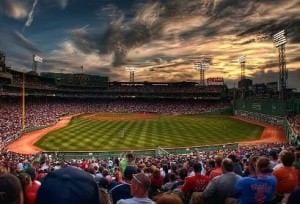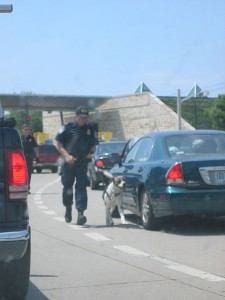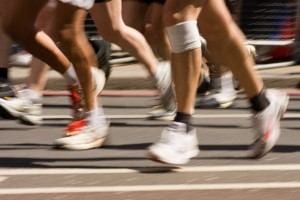Travel News
How the Boston Bombings Will Change National Security
Image Credit: Wikimedia Commons User Rklawton
On Monday, two bombs were detonated at the Boston Marathon, killing three and wounding hundreds. Suspect Tamerlan Tsarnaev was killed on Friday morning. Later that day, his brother, the second suspect, Dzhokhar A. Tsarnaev was taken into police custody. While many questions about this attack remain unanswered, it is clear that this incident will have a longstanding impact on our national security, in terms of travel and public events, as well as day-to-day safety. Watch Peter’s report on CBS This Morning Saturday and read our report below.
Security in Major Cities
After the bombings on Monday, there has been increased security in Boston. The area of the bombing in Back Bay was closed to investigations, while the city opened its transportation by Tuesday. Boston Security was increased on Thursday when the President and First Lady attended a funeral service to honor the victims. Officers from outside of Boston were deployed to increase security, joining police from the Metropolitan Law Enforcement Council SWAT team who have been in Boston since the bombing Monday.
On Friday, the Boston police conducted a manhunt, shutting down Boston, Cambridge and Watertown. Residents were told to stay at home, and school, businesses, and mass transit were all closed. During these events Logan International Airport did remain open, and most airlines offered a fee waiver for passengers to change flights since some flights were canceled. By Friday night, the ban was lifted and citizens were able to leave their homes.
Across the country, cities such as New York, Chicago, Los Angeles, Seattle, Atlanta, and Washington have increased police presence and added bomb-sniffing dogs in busy areas and transportation hubs. Reporters have noted that armed police officers with dogs have been seen at LAX. Because terrorist attacks are a great concern in large cities, particularly New York, overt and covert security tactics will increase for travel as well as major public gathering.
Security Expert Patrick Brosnan of Brosnan Risk Consultants notes that there will be a significant increase in the demand for bomb-sniffing dogs.
In addition to human efforts of increased screenings and undercover efforts, there will also be a technological component. Brosnan predicts video analytics will have increased importance. Brosnan noted, “Smart cameras let you monitor for specific movement in an area (e.g. scaling a fence, abandoning a package),” said . “When that movement happens, a specific audio alert is available.” Video analytics are already being used by the NYPD throughout high-profile places in NYC.
Security at Public Events
 The bombings at the Boston Marathon have left many people concerned about safety and security at public events, particularly for sports, which draw large crowds and can be easy targets.
The bombings at the Boston Marathon have left many people concerned about safety and security at public events, particularly for sports, which draw large crowds and can be easy targets.
“This isn’t regular criminology where you can measure a reduction in crime based on the increased presence of officers,” explains Chris Falkenberg, president of Insite Security. “Terrorist attacks are so far apart, so unlikely, so statistically insignificant, that regular calculus doesn’t work.”
That said, TD Garden and Fenway Park in Boston have already begun to greatly increase security their security measures. And Fenway Park postponed its Friday game.
For the Bruins game on Wednesday night, cars were searched after they entered the garage, and patrons were checked with wands and patted down. At Fenway Park, security will scan every fan with a wand, and check every bag, which could make lines at the gates slower. An Explosive Ordinance Detection Team has and will continue to conduct sweeps throughout the ballpark.
This weekend features more big events, which also have been stepping up their security. On Sunday, Hamburg and London will continue with their marathons, and London police have been on alert since Margaret Thatcher’s funeral on Wednesday. Extra security and police are being positioned along the London marathon route, and there will be increased screening at registration points.
In New York, the 9/11 Memorial 5K in Lower Manhattan and a four-mile run in Central Park will continue to take place. New York City security is different from other U.S. cities, since police have been preparing for potential terrorist attacks on large sporting events for more than a decade. Before the marathon in November 2001, Road Runners was asked to give law enforcement officers a list of the participants, which was checked against lists of known criminals. Security checks were run on all volunteers, coaches, managers, and reporters. Last year, the police in New York started to charge race organizers for the cost of their security details, which were passed on to runners in the form of higher entry fees.
When it comes to public security, there is a big difference between an event in a sports stadium and one marathon, which is out in the open and passes through a city.
“By definition, a 26-mile event is very porous,” said Brosnan. “With a sporting event at an arena it can be a ‘contained’ event. You can sweep the event prior for chemicals with bomb sniffing dogs, etc., then you can screen and continue to monitor the event with minute to minute surveillance. It’s to control a regular-sized event. It’s practically impossible to control an event like a marathon.”
By Stephanie Ervin for PeterGreenberg.com














